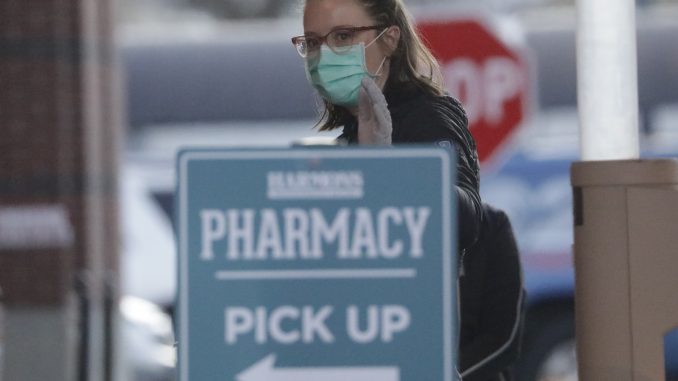
RALEIGH — Hydroxychloroquine and the related drug chloroquine are being looked at as possible for treatments for COVID-19.
Doctors in countries like France, South Korea and in some areas of the United states are using hydroxychloroquine with some success.
“HYDROXYCHLOROQUINE & AZITHROMYCIN, taken together, have a real chance to be one of the biggest game changers in the history of medicine. The FDA has moved mountains – Thank You! Hopefully they will BOTH (H works better with A, International Journal of Antimicrobial Agents),” President Trump tweeted on March 21.
Dr. Anthony Fauci, Director of the National Institute of Allergy and Infectious Diseases, was quick to clarify the president’s claim. Fauci indicated more investigation was needed and that, so far, there has only been “anecdotal evidence” that hydroxychloroquine or chloroquine might be effective in combating COVID-19.
These drugs belong to a class of medications known as “disease-modifying antirheumatic drugs” or DMARDs for short.
Hydroxychloroquine has been used to prevent or treat certain types of malaria and malaria related infections. When other medications can’t be used or are not working, it can also be used to treat auto-immune diseases like rheumatoid arthritis or lupus.
North State Journal reached out to the N.C. Department of Health and Human Services to determine if the state was requesting hydroxychloroquine or chloroquine as well as azithromycin.
NCDHHS communications manager Kelly Haight Connor responded, indicating that the state made a request for hydroxychloroquine tablets from the Strategic National Stockpile and from a private donor. Connor added that both the NC Medical Board and the NC Board of Pharmacy have adopted policies limiting the prescribing and dispensing of hydroxychloroquine, chloroquine and azithromycin among others to preserve access to those medications for people who rely on them for chronic conditions. Connor emailed again today that the private donor, Amneal Pharmaceuticals, was shipping the requested medication this week.
Dr. Mark McClellan, who directs the Duke-Margolis Center for Health Policy, doesn’t see strong proof these drugs work. McClellan is an economist and is a former commissioner of the U.S. Food and Drug Administration and former administrator of the Centers for Medicare & Medicaid Services.
“There isn’t definitive clinical evidence that hydroxychloroquine or chloroquine are actually effective in the case of COVID-19,” said McClellan in recent conversation with other Duke University scholars about the current pandemic.
“It’s premature for people to be using it. Right now the best evidence is that those drugs should be preserved for patients for whom there is clear evidence,” McClellan said.
“There are trials ongoing right now to see if it is effective against the virus. But there’s been so much hype and enthusiasm for the drug you worry about there being shortages for people who do need them,” said Dr. Peter Ubel, a physician and professor of business, public policy and medicine at Duke University.
“Individual physicians need to show restraint in prescribing these medications,” said Ubel.



